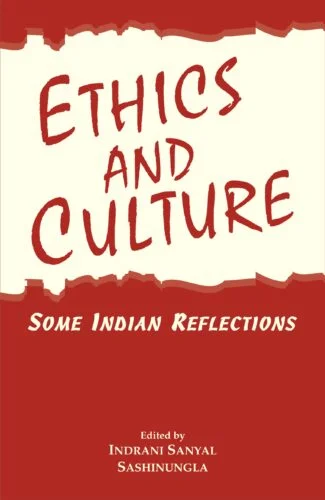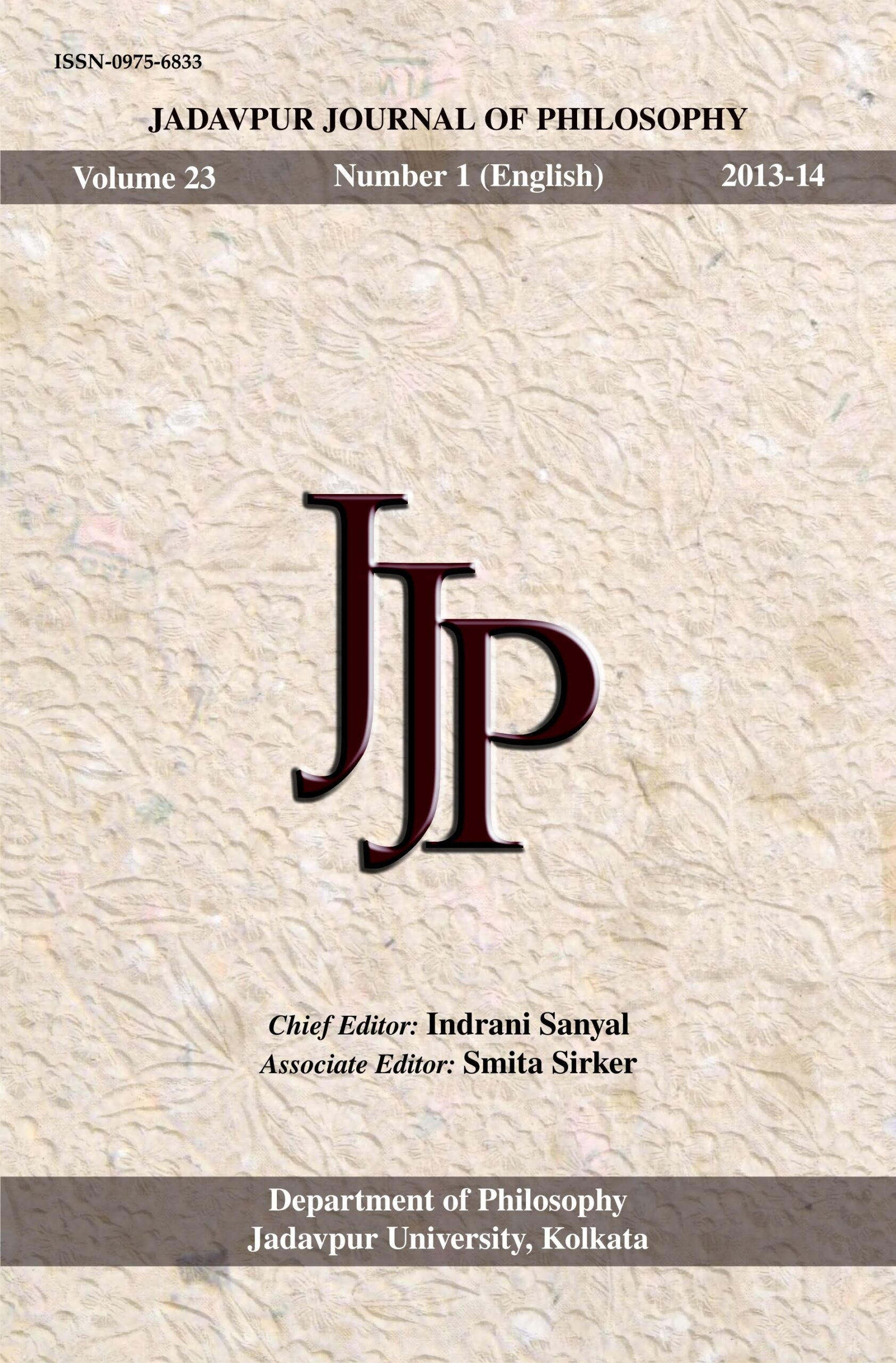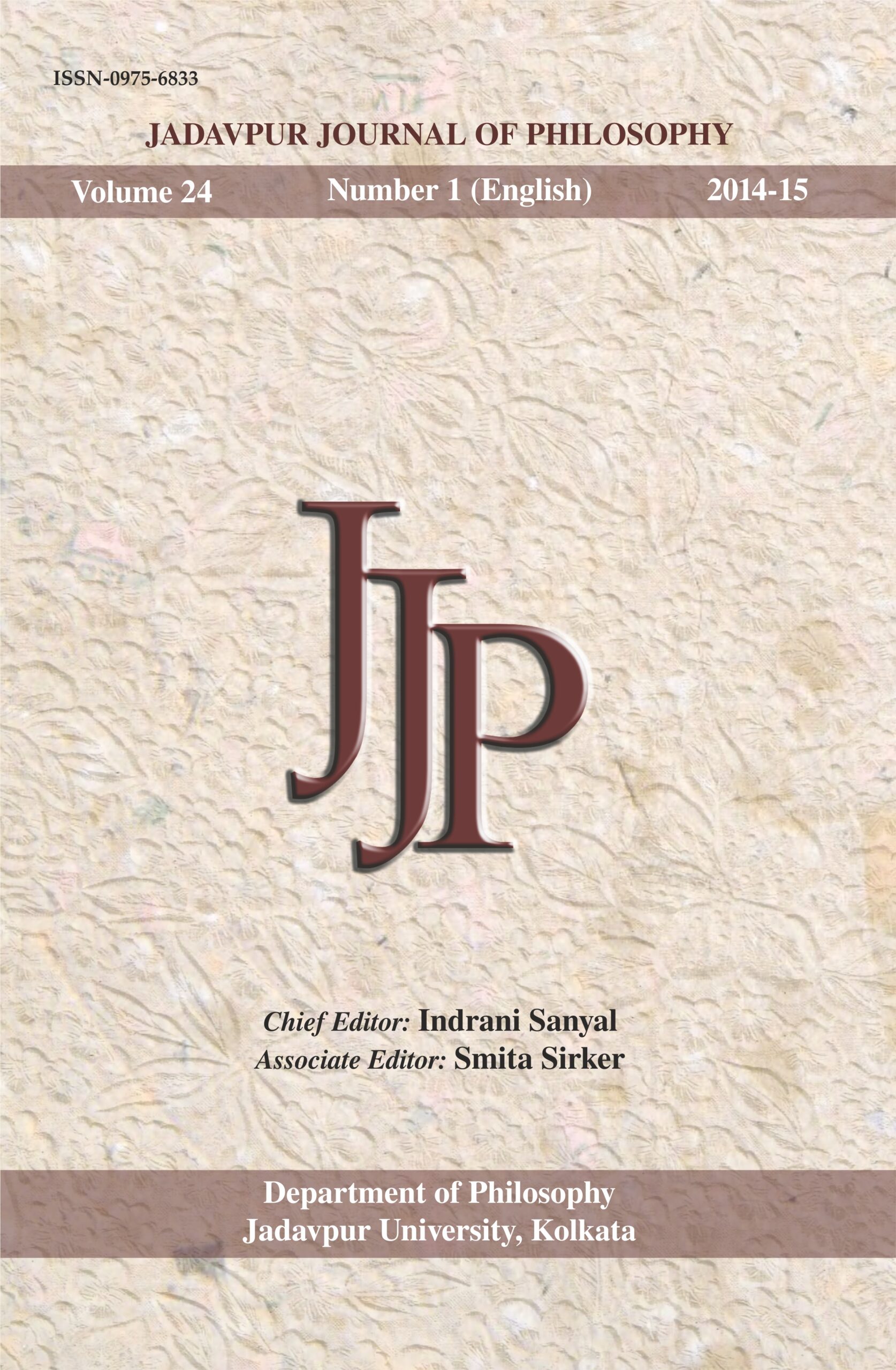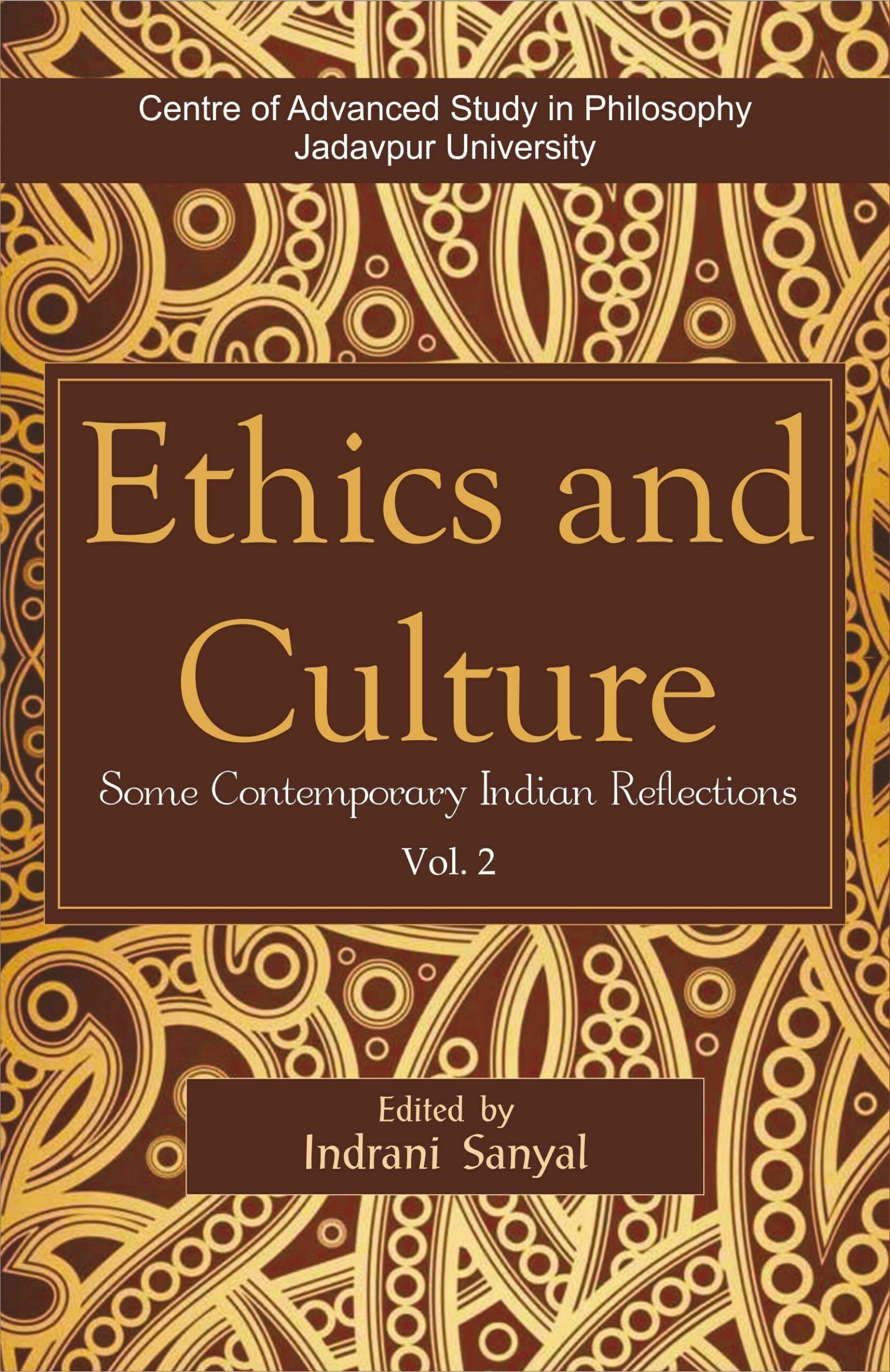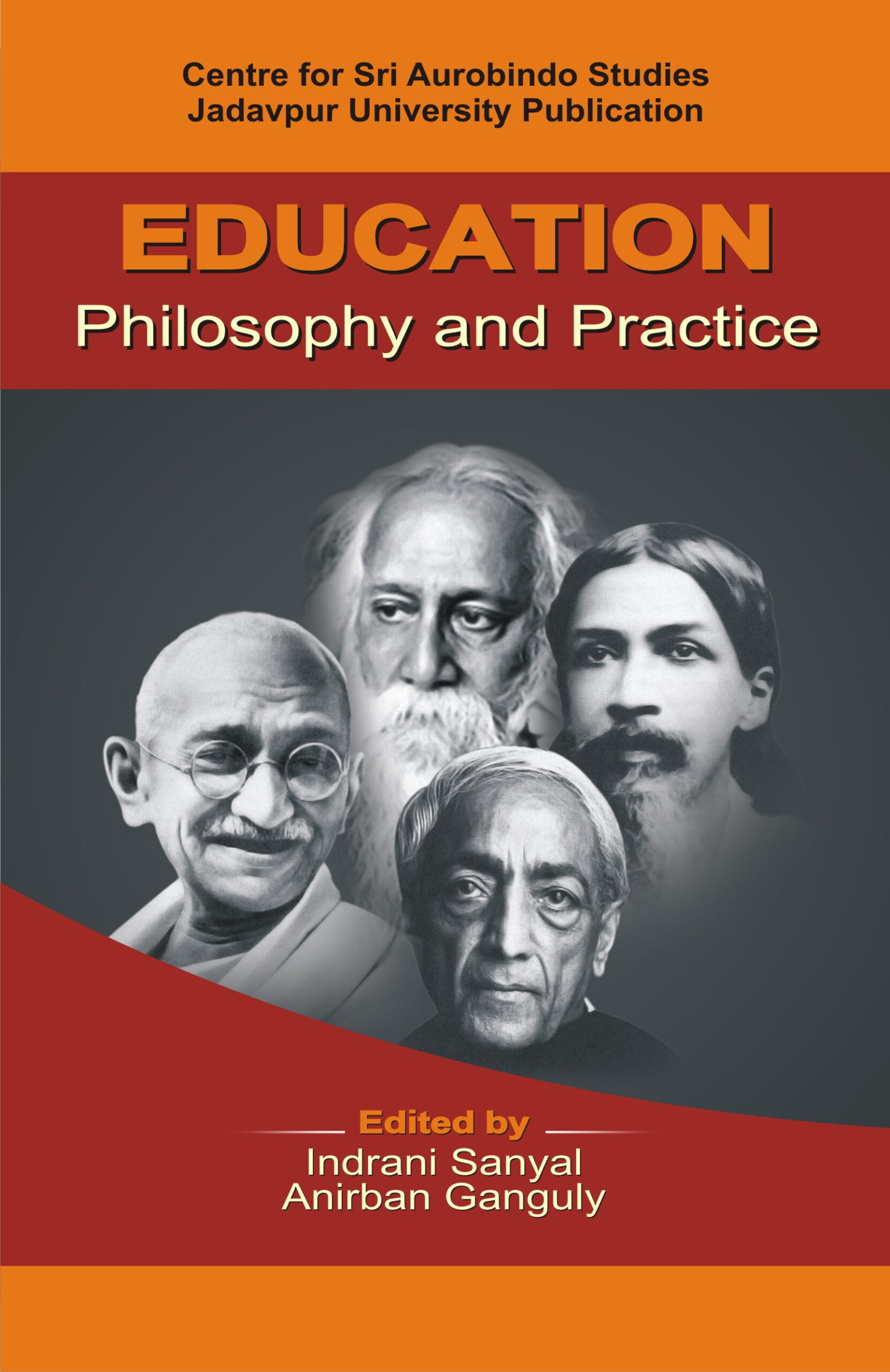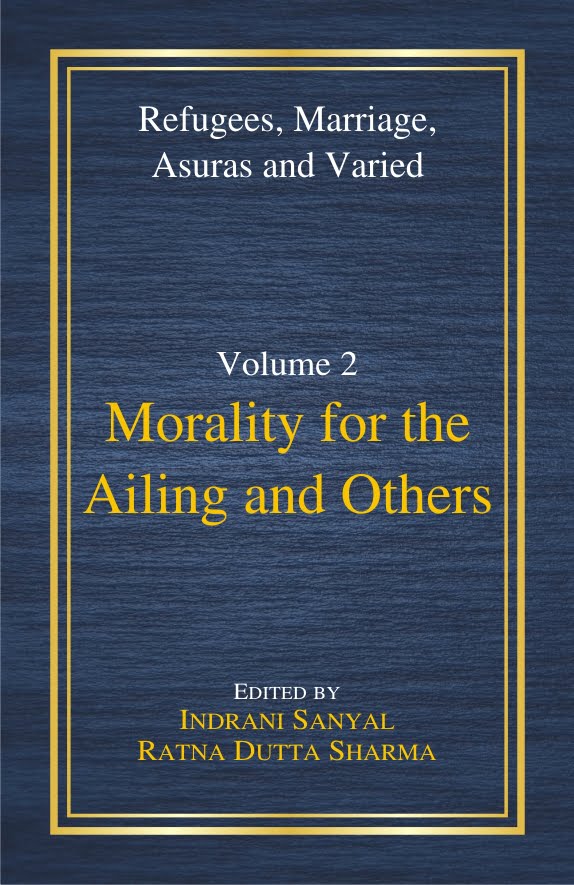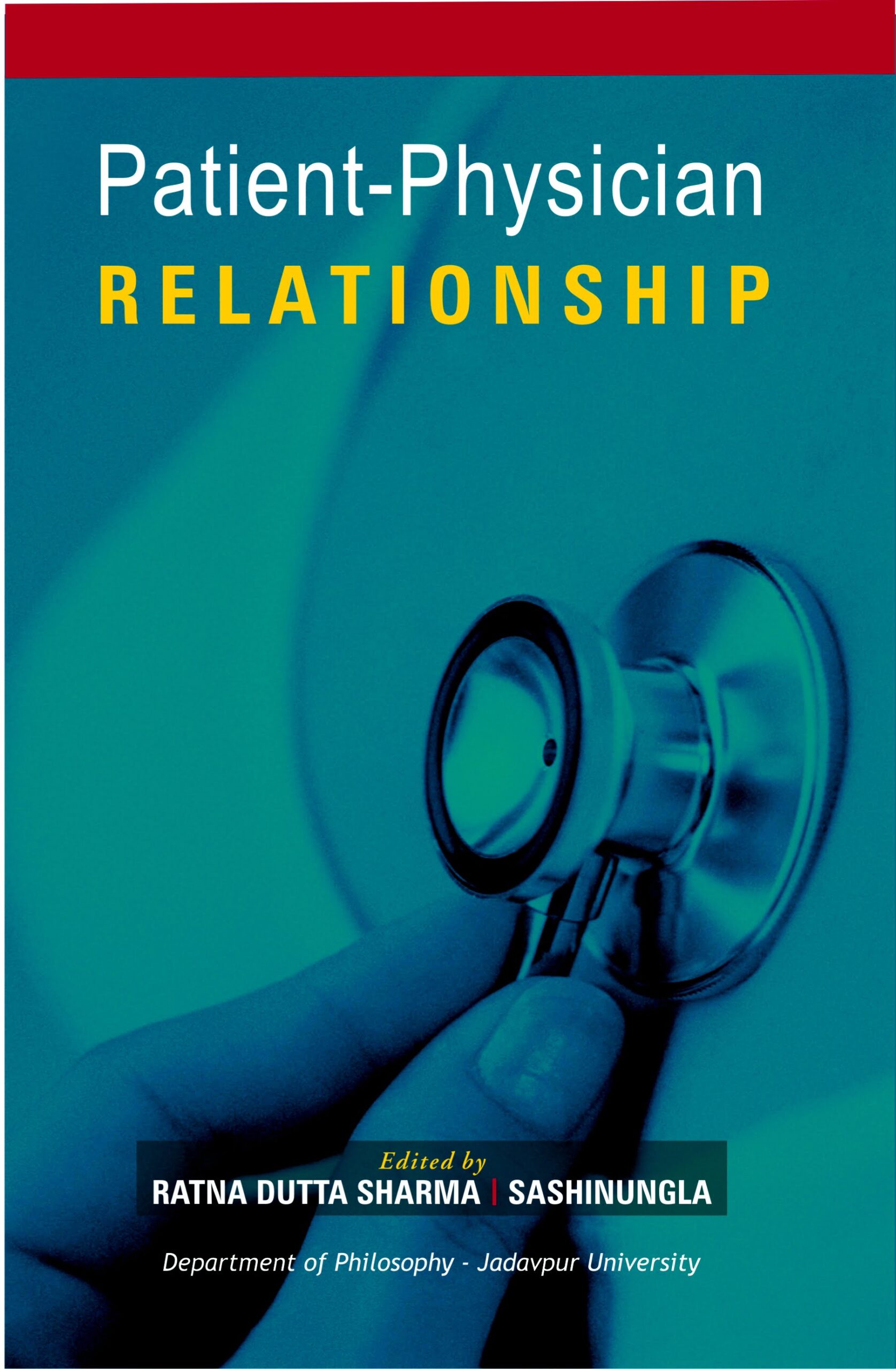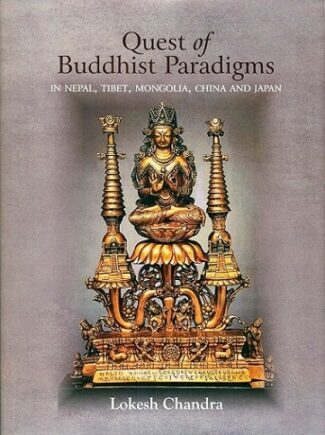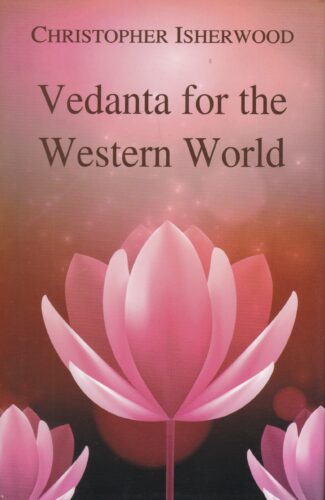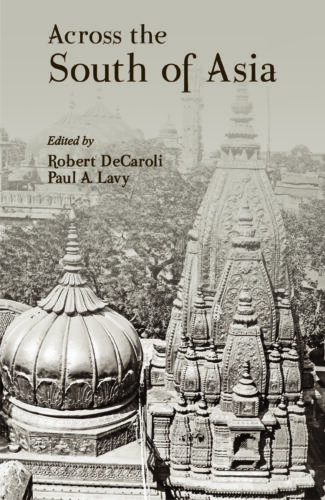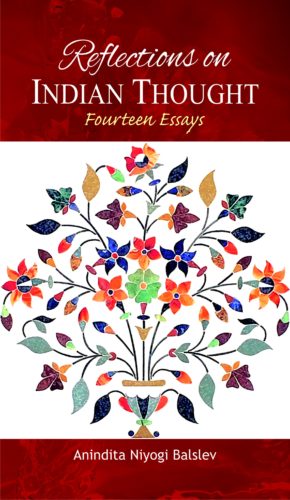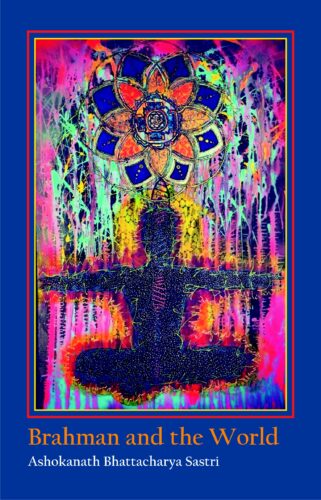

Ethics and Culture:S...
Ethics and Culture:Some Indian Reflections
by: Indrani Sanyal , SashinunglaThe book explores values that involve mans existence and his interaction and interrelations with others and deal with the Vedantic, political and economic thoughts of eminent saints and thinkers of India. The articles also include various viewpoints with the hope to ignite the spirit of better understanding of values.
₹795.00 Original price was: ₹795.00.₹716.00Current price is: ₹716.00.
ISBN: 9788186921524
Year Of Publication: 2010
Edition: 1st
Pages : viii, 364
Language : English
Binding : Hardcover
Publisher: Decent Books
Size: 23
Weight: 700
The anthology Ethics and Culture: Some Indian Reflections looks into global and local questions pertaining to individual morality and social ethos in the larger domain of man in relation to man, in relation to various domains of society and also in relation to nature/world/cosmos. A group of philosophers have presented a panorama of pluralistic Indian perspectives that include classical, traditional Vedic, contemporary and tribal viewpoints with the hope to ignite the spirit of better understanding of values. The result is a well-planned text for students of philosophy, sociology, anthropology and politics and an analytic and authentic reference for researchers with interest in these areas of thought.
Any forward-looking reader with a wider interest may find this anthology to be quite useful.

- Sale!Quest of Buddhist Paradigms, in Nepal, Tibet, Mongolia, China and Japan by: Lokesh Chandra
₹2,500.00Original price was: ₹2,500.00.₹2,250.00Current price is: ₹2,250.00.The book narrates the interwovenness of culture between India, Nepal, Tibet, Mongolia, China and Japan. It begins with Nepal with its history alive on the waysides and homes, its rich preservation of Buddhist sutras in Sanskrit, esp. the Tattvasangraha which lives in the Shingon denomination in Japan, in the icons of Alchi and in the grandeur of the Borobudur. The second chapter deals with Tibetan studies, edition of the Vinayavastu, the anachronism of Jesus Christ being in the Hemis monastery which was founded as late as the 17th century, the total destruction of Tibetan culture in a long letter of Prof. A.W. Macdonald, saving the Derge monastery and printery by seven encirclements of devotees under the supervision of Ven. Pewar Tulku at the risk of his life, and the Sven Hedin collection in Stockholm. The fourth chapter concerns Mongolian studies: Emperor Ch’ien-lung’s edition of the Mongolian Kanjur, and dialogues with Prof. Rinchen on the total cultural genocide in Mongolia
- Sale!Vedanta for the Western World by: Christopher Isherwood
₹1,700.00Original price was: ₹1,700.00.₹1,530.00Current price is: ₹1,530.00.Vedanta for the Western World is a collection of sixty-eight articles appeared in a magazine having the same title during 1938-45 by eminent scholars of international repute such as Aldous Huxley, Allan Hunter, Gerald Heard and Swami Prabhavananda reflecting on the varied aspects and universal reflections of Vedanta, with an Introduction by Christopher Isherwood. Vedanta, the Vedic philosophy per se, and not time-specific, focuses on three fundamental propositions that man’s real nature is divine; aim of human life is to realize this divine nature; and all religions are essentially in agreement as far as this divine concept is concerned. The essays featured in this volume imbibe and exude the same philosophy being best suited to the understanding of new generation audience, especially the one that belongs to the Western world. This unique volume stands out in its genera of works due to a wide gamut of topics featured in it under the umbrella banner Vedanta. It enables every student of Vedanta know the essence of the Vedic philosophies from the perspectives of both Indian and Western scholars and men of merit.
- Sale!Across the South of Asia by: Robert DeCaroli, Paul A. Lavy,
₹1,700.00Original price was: ₹1,700.00.₹1,530.00Current price is: ₹1,530.00.All too often, modern scholarship limits its scope according to the boundaries of contemporary nations and current geopolitical borders. Academic expertise frequently ties itself artificially to these pre-defined spaces and in so doing often does a disservice to the past. It is no great revelation to point out that people of the past defined the limits of their political and cultural reach in ways that were very different from those found on modern maps. Ancient rulers, merchants, and priests understood the reach of their influence and defined foreignness in ways that would be deeply unfamiliar to those only knowledgeable of the modern world. Yet, despite the well-recognized truth in these observations, it is still relatively rare for scholars to research in ways that transcend modern boundaries.
This collection of essays invites readers to take a broad view of South Asian art and culture by providing a wide geographic and chronological scope. The articles are united only by their focus on art historical and archaeological concerns and their concentration on South Asia ranging from Afghanistan to the island kingdoms of Indonesia. Each essay on its own constitutes a solid, well-grounded academic study, but taken collectively they provide a wide and inclusive view of issues of art and material culture that span the region and invite comparison.
By taking this approach, this volume is a tribute to Prof. Robert L. Brown whose lifetime of teaching has always emphasized connections as well as differences. Over his professional career, he has trained a large cohort of students (many of whom are contributors to this volume) whose expertise truly does reach across the south of Asia. - Sale!Reflections on Indian Thought by:
₹850.00Original price was: ₹850.00.₹765.00Current price is: ₹765.00.This anthology, consisting of fourteen essays, deals with a variety of themes that are of central importance for an authentic appreciation of the philosophical core of the Indian culture. The readers will find here illuminating discussions on various issues that bear witness to the critical thinking and deep reflection on the part of the author that have enabled her to carefully expose the subtle internal divergences that nourish the Indian conceptual world.
Based on arduous and painstaking research, these essays focus on a range of topics. There are several essays on multiple aspects of the large themes of time and consciousness, penetrating analysis showing how in the ancient discourse ideas of klesha (affliction), abhyasa (practice) and karuna (compassion) as well as on women and values are dealt with. There are also deliberations on the themes of religious diversity and the need for an encounter of world religions along with the attempt to explore India’s self-image. All these have contemporary relevance, as these essays clearly bring out the distinctive character of a living culture. - Sale!Brahman and the World by: Ashokanath Battacharya Sastri
₹500.00Original price was: ₹500.00.₹450.00Current price is: ₹450.00.“The Vedānta has been rightly called the Finest Fruit of Indian Thought and the Upaniṣads as the Finer Flowers. Vedānta grows out of the teachings of the Upaniṣads and passes into the various systems in the writings of Śaṅkara, Bhāskara, Rāmānuja, Madhva and Vallabha, the great founders of Advaita, Bhedābheda, Viśiṣṭādvaita, Dvaitādvaita and Śuddhādvaita, respectively. However, there is a perception among Orientalists that while the Upaniṣads favour the Monistic doctrine, Bādarāyaṇa’s Brahmasūtra fundamentally opposes it on some of the most crucial points.
The book thus delves deep into the philosophies of both Bādarāyaṇa and Śaṅkara in enunciating the essential features of Brahman and Its association with the world. It thus discusses topics such as what sort of cause Brahman is?, and what sort of material causality is to be ascribed to It? It also addresses the conflicting views on the nature of Brahman like that of Vivarttavāda and of Rāmānuja’s Saguṇa-Brahman.
This book proposes to take up the question of Universal Causation to examine thoroughly as how far it is right to regard Brahman as the Universal Cause and how far sūtrakāra himself lent his support to each of the inter-conflicting schools of Vedānta. This book should, therefore, benefit all who are devoted to the philosophic teachings of Advaita Vedānta and its preceptors.”


